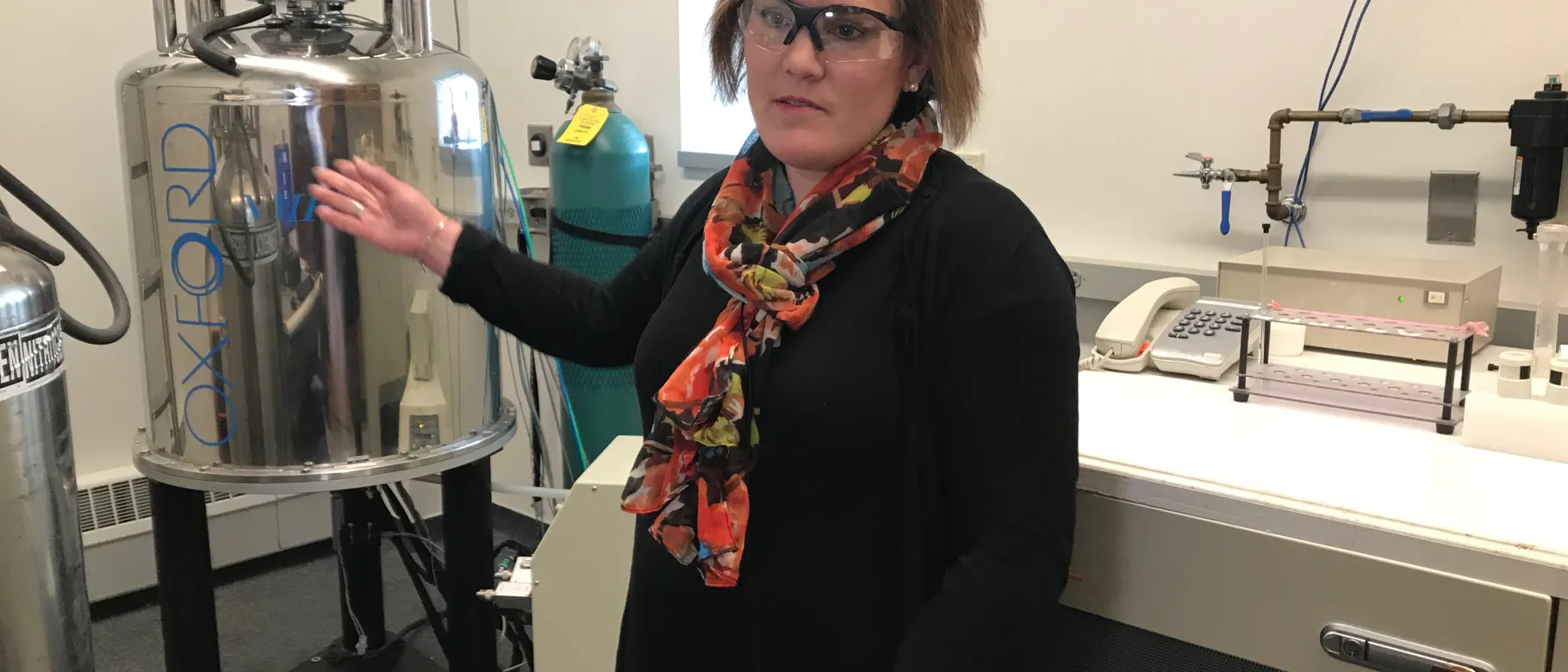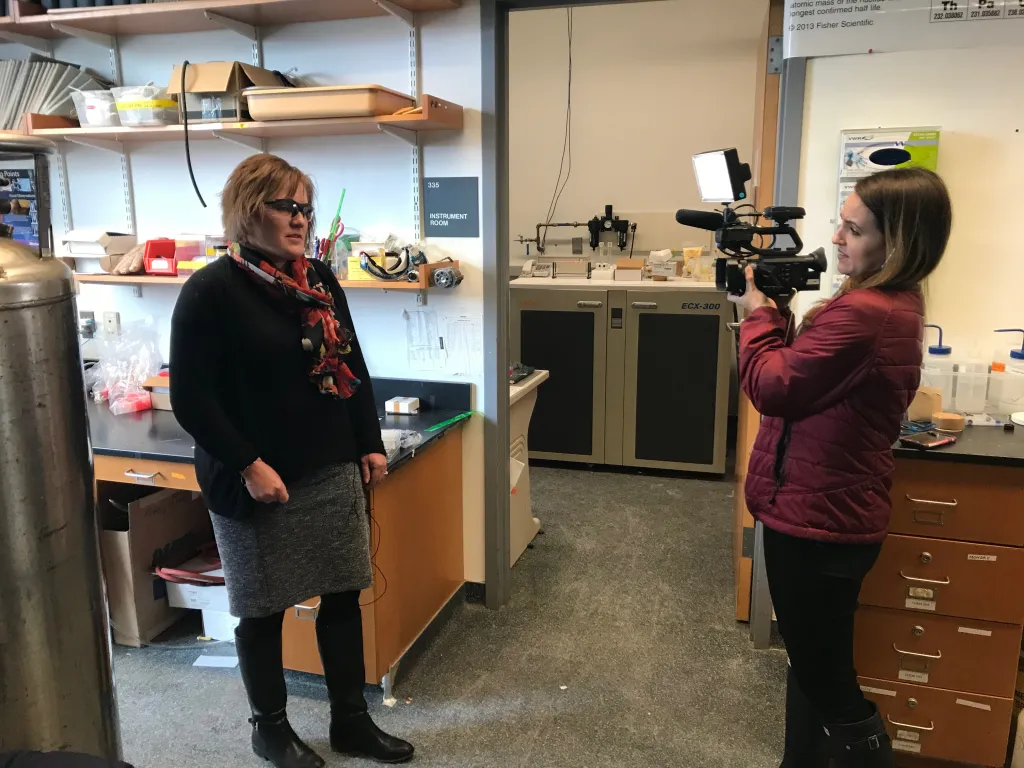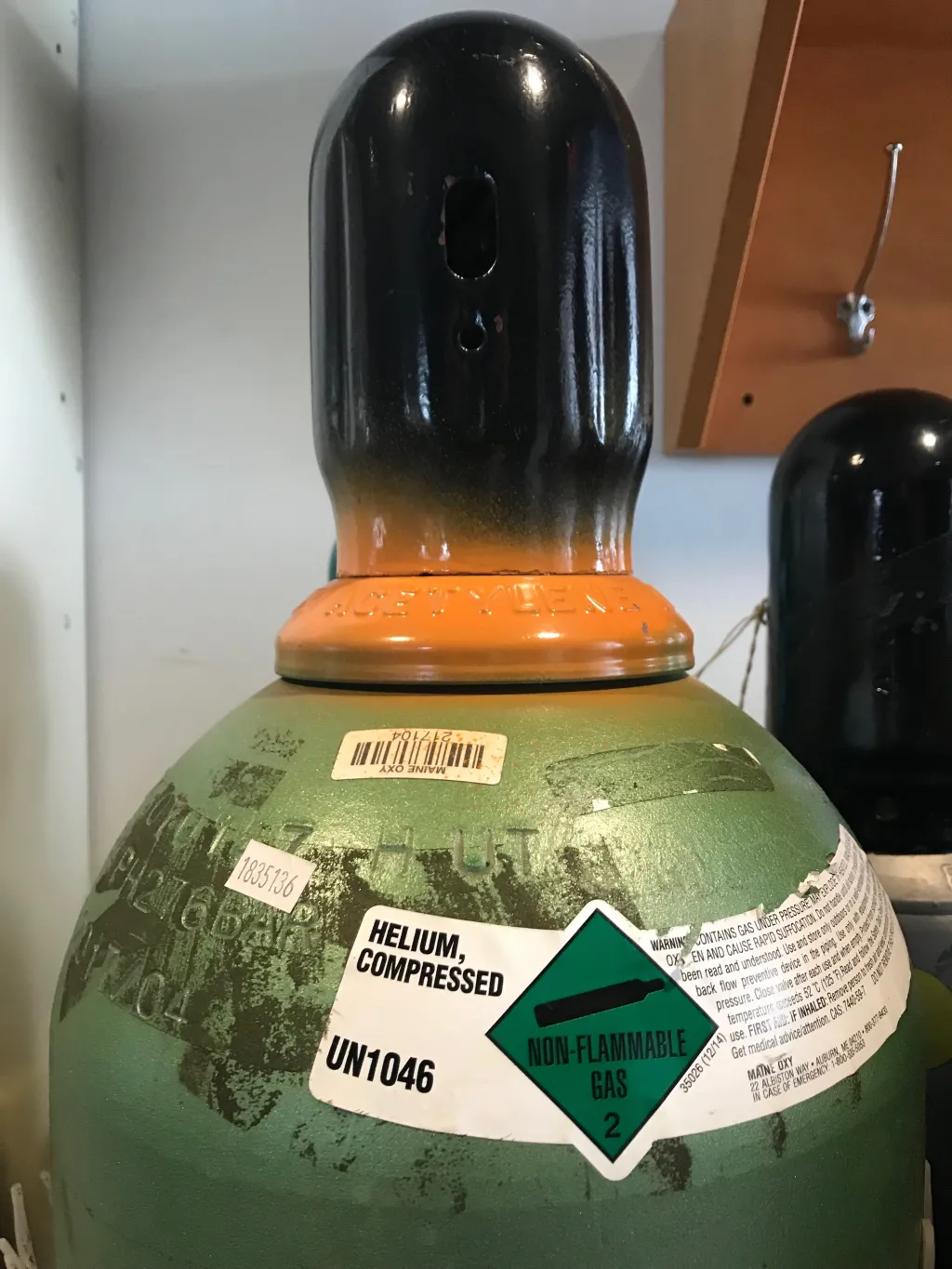Research institutions, medical facilities and party shops feeling the pinch of helium shortage

A global helium shortage is impacting everything from party balloons to scientific research.
The effects are beginning to be felt here in Maine.
Amy Deveau, Ph.D., associate professor and assistant chair of the Department of Chemistry and Physics, showed WCSH some of the tools she uses that rely on helium.
"NMR stands for Nuclear Magnetic Resonance Spectroscopy and it's an essential tool for chemists," said Deveau. "It helps us figure out the structures of molecules.”
The instrument, with a massive superconducting magnet inside, runs on liquid helium. Deveau tells WCSH helium is becoming more difficult to get.
"It's pretty scary actually," she said. "There's really nothing right now to replace it."
The largest demand for helium is for MRI machines. Perhaps the most popular use is in party balloons.
The shortage appears to be caused by several factors, including sanctions on overseas supplies, lower U.S. production and prioritizing what's available for military and medical uses.
Scientists estimate the helium supply will run out in the next 25 or so years.
Deveau and her students use the NMR spectrometer to determine the structures and properties of natural products produced by algae harvested from the Gulf of Maine. The group includes one graduate student and three undergraduates.
The students are given the opportunity to cross-train in the lab of collaborator Kristin Burkholder, Ph.D., associate professor of Biology. That gives them lab skills in both organic chemistry and microbiology, helping them to succeed in their professional lives.
Deveau’s group is funded by a National Science Foundation-Maine EPSCoR Award under the Sustainable Ecological Aquaculture Network (SEANET).

